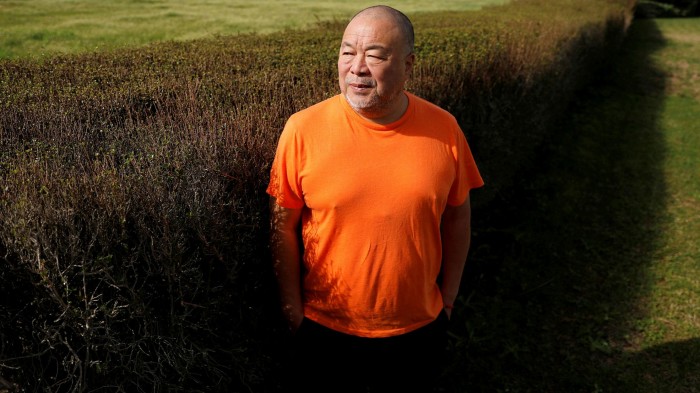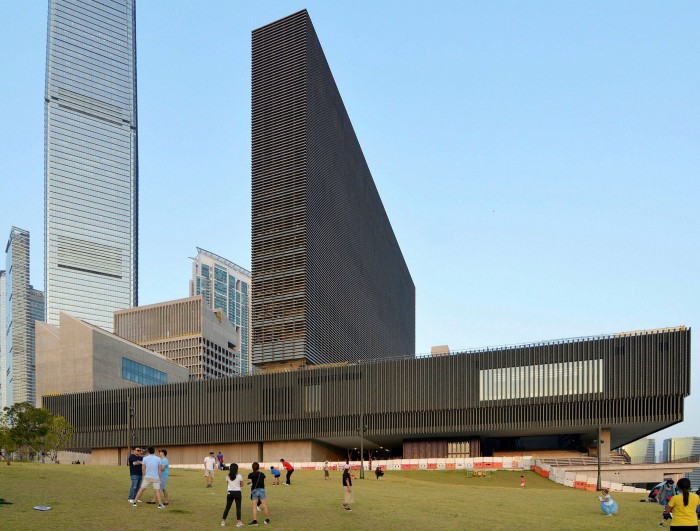Hong Kong ‘extra cautious’ over museum set to show Ai Weiwei’s work

Roula Khalaf, Editor of the FT, selects her favourite stories in this weekly newsletter.
Carrie Lam, Hong Kong’s leader, has said officials will be “extra cautious” to ensure the city’s new M+ Museum of visual culture does not undermine national security, as China cracks down on freedom of expression in the territory.
The Herzog & de Meuron-designed M+ Museum was set to feature the work of Chinese dissident artist Ai Weiwei after one of the world’s most prolific collectors of contemporary Chinese art, Uli Sigg, donated the majority of his collection to Hong Kong.
The museum’s opening, expected later this year, is one of the most anticipated in the Asia-Pacific region. After facing delays, the construction of the 65,000 sq m TV-like building was completed last Friday.
“We will be extra cautious about this matter,” Lam said on Wednesday, adding that M+ management should be able to decide whether their exhibitions were in breach of China’s new national security law.
The security law was introduced to Hong Kong by Beijing last year in response to the 2019 pro-democracy protests, one of the biggest challenges to central authorities on Chinese soil in decades.
The law ushered in a broad crackdown on Hong Kong targeting political opposition in an attempt to bring the territory in line with the mainland.
The city’s previously freewheeling civic society has not escaped untouched. Teachers have been disqualified, journalists arrested, curriculums changed and civil servants forced to swear loyalty oaths.

Lam made the remarks after Eunice Yung, a pro-Beijing politician, suggested the museum’s exhibits might spread hatred against China and be in breach of a new law. Lam said “as a cultural and art centre” the government would respect freedom of expression.
M+ is to be led by the former deputy director of one of Australia’s top galleries, Suhanya Raffel, who has previously vowed to fight political interference and told local media there would be “no problem” showing Ai Weiwei’s works.
Asked whether this was still the museum’s position, a spokeswoman said: “As a public museum operating in Hong Kong, we will comply with the laws of Hong Kong whilst maintaining the highest level of professional integrity.”
Twenty-six of the 1,450 works Sigg has donated to Hong Kong are by Ai, and the collection has an estimated value of $163m. Sigg said last year that his friend Ai claimed he would rather have all his things thrown into a lake “than given to China”.
State-backed media in Hong Kong has also criticised the arts industry, and said it was too supportive of the 2019 protest movement. On Wednesday pro-Beijing newspaper Ta Kung Po published an article accusing a Hong Kong government body of granting funds to arts organisations suspected of violating the security law.
The pressure led a cinema to cancel the public screening of documentary Red Brick Wall, which examined university sieges during the anti-government protests.
Letter in response to this article:
Is Dvorak on the metro music to China’s ear too? / From Paul Serfaty, Mid Levels, Hong Kong
Comments